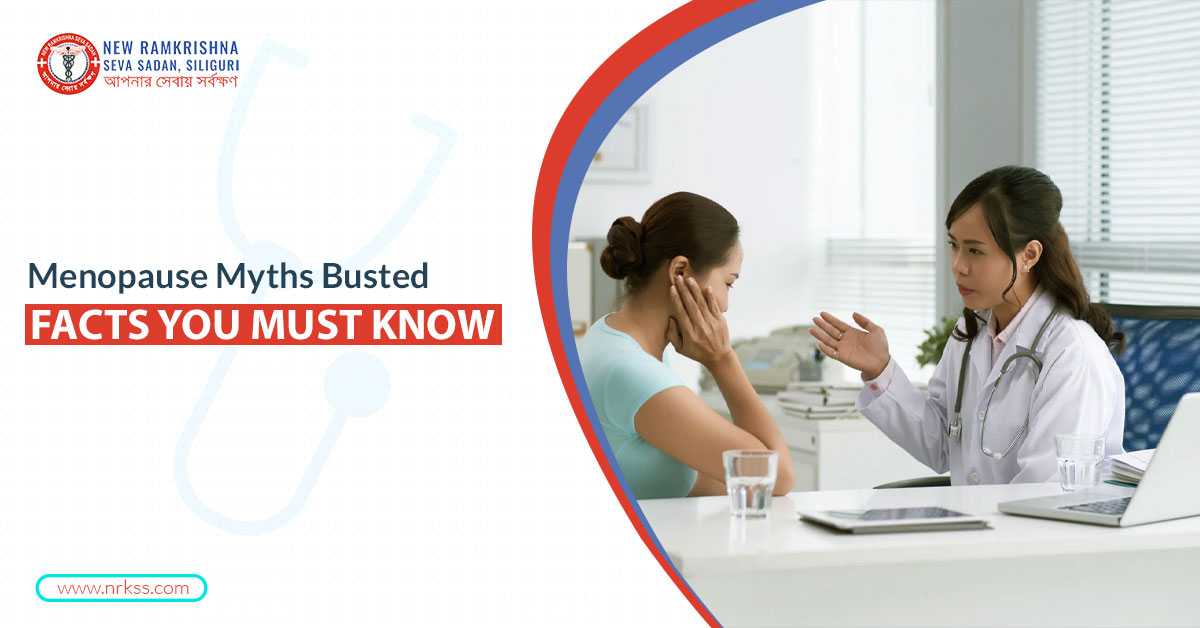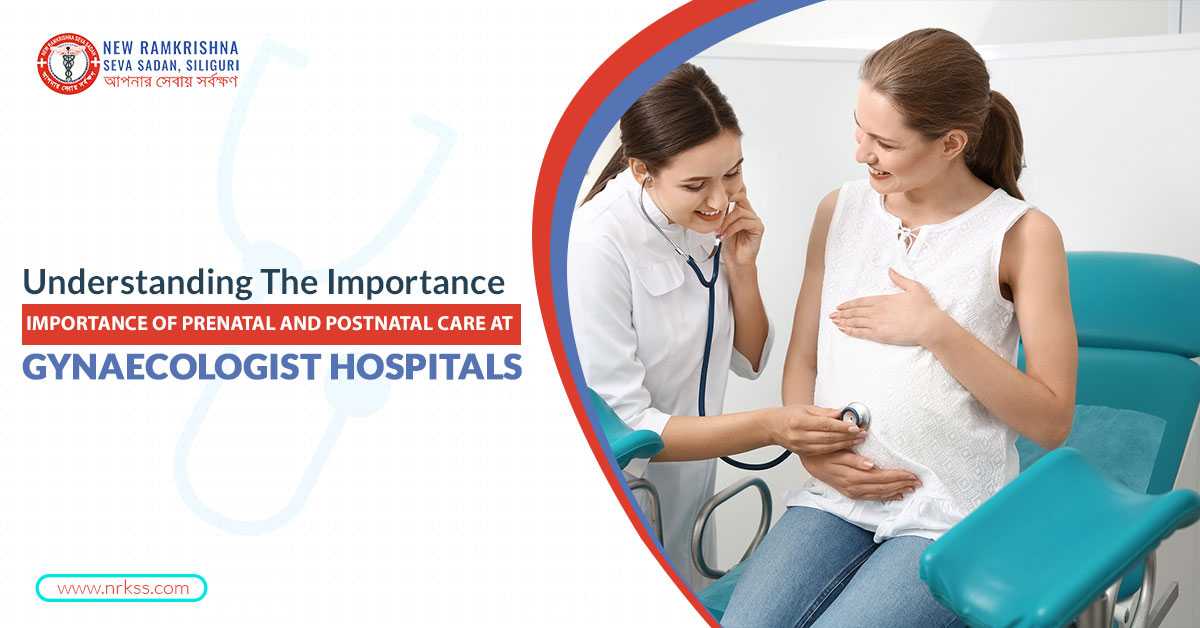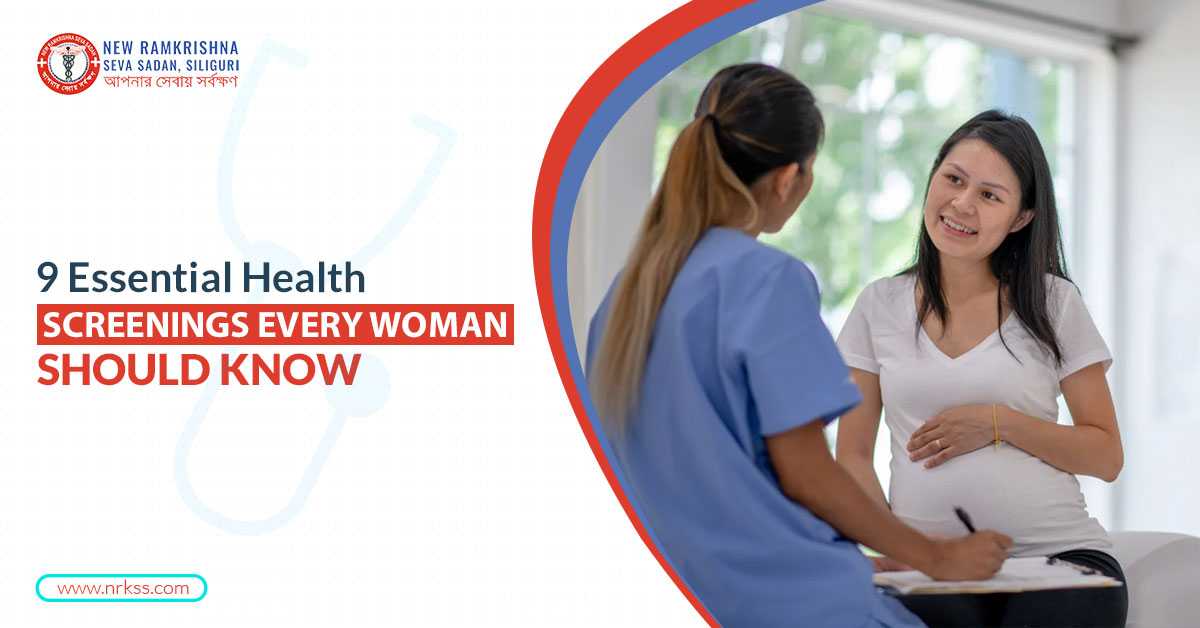Maintaining women’s well-being involves several factors. The two major factors are lifestyle modifications and routine health screening. While lifestyle choices are vital to reducing the risk of diseases,the importance of health screening is invaluable.
These screenings can identify conditions when they are most treatable. For effective diagnosis and expert care, meet the top obstetrician in Siliguri City. Receive comprehensive health analysis under expert supervision.
#1 Thyroid Function Test
Your doctor can learn how well your thyroid gland functions with thyroid testing. A thyroid screening can detect hyperthyroidism, thyroid gland inflammation, Graves' disease, thyroid cancer,and Hashimoto's disease. These tests include blood tests, imaging tests, nuclear medicine tests, etc. However, blood tests are the most common thyroid function test.
#2 Pap Smear
One important health screening for women is a Pap smear, which mainly detects cervical cancer.This screening procedure looks for abnormal cell changes in the cervix.
Pap smears should be performed on women starting at age 21 and thereafter every three years or as directed by their doctor.During Pap examinations, doctors oftenconduct HPV testing to screen for HPV, one of the main causes of cervical cancer.
#3 Blood Pressure Monitoring
Hypertension, or high blood pressure, may cause heart disease, kidney disease, and stroke. Women should get their blood pressure monitored. People should check their blood pressure more often if they have a family history of hypertension or other risk factors.
Avoiding major cardiovascular conditions like heart attacks and strokes may be easier to diagnose and manage with quarterly monitoring. You might see the best gynecologist in Siliguri for all-inclusive women’s healthcare.
#4 Mammogram
An X-ray image of your breasts is called a mammogram, which can be used for several diagnostic purposes. These include looking into symptoms or abnormal results on othertests or for breast cancer screening.
Did you know that before breast cancer manifests itself, mammograms can identify it? Conventional mammograms provide two-dimensional images, while modern mammograms ensure 3D images.
#5 Test for Blood Sugar
Out of 828 million individuals worldwide, an estimated 212 million have diabetes in India. If left untreated, diabetes may cause serious health consequences. If you have no risk factors for diabetes, you should get screened for the disease at age 35 and then every three years.
But if you have risk factors, including a family history of heart disease, high blood pressure, obesity, PCOS, or being overweight, your screening will be done sooner or more often.
#6 Cholesterol Test
For women without risk factors, cholesterol screening should start at age 45; for those with risk factors, it should start at age 20. Diabetes, heart disease, renal disease, and a few other illnesses can put people at risk of cholesterol. Your doctor may use a cholesterol test to diagnose your risk of blocked or obstructed arteries.
Coronary artery disease is a common kind of heart disease, and high cholesterol is often a major risk factor for it. Heart attack and stroke are among the health concerns that can result from coronary artery disease.
#7 Bone Density Test
For women, osteoporosis is a serious worry, more so after menopause. Bone strength is measured, and fracture risk is estimated using a bone density test ( called DEXA scan).
Women with risk factors such as a family history of osteoporosis or fractures should consider a bone density test at age 65 or earlier.The test counts the grams of calcium and other bone minerals that are packed into a bone section using X-rays. You might consult talking to the best obstetrician in Siliguri at New Ramkrishna Seva Sadan.
#8 Colonoscopy
Specifically for women over 55, colorectal cancer is a major health risk. Doctors can detect precancerous polyps or early-stage colorectal cancer using a stool-based test or colonoscopy.
Colorectal cancer screening should start for women at age 45 and be repeated every ten years or as prescribed by their physician. Here, doctors can diagnose and remove asymptomatic polyps that may progress to colon cancer.
The American Cancer Society advises women and menwith an average risk of colon cancer to start screening at age 45 and, if they are in generally good health, to have a colonoscopy every ten years until they are 75.
#9 Vision and Hearing Tests
Hearing problems can negatively impact your mental health and quality of life. Before you are 50, get your hearing evaluated every ten years; after that, get it done every year.
Hormone fluctuations are another factor that makes women more vulnerable to vision problems. Menopause, pregnancy, and the usage of hormones and birth control pills may put women at risk of impaired vision. A routine eye exam, such as once a year, is a wise choice here.
Through the early diagnosis of any health concerns, routine health screenings enable women to protect their health. Expert advice from one of the best obstetricians in Siligurimay help create a customized screening program that considers risk factors, medical history, current health, and age.




